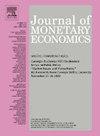就业不足陷阱
IF 4.3
2区 经济学
Q1 BUSINESS, FINANCE
引用次数: 0
摘要
许多大学毕业生就业不足,即从事不需要大学学位的职业。我们发现,就业不足的工人就业不足的时间越长,就越不可能过渡到大学职业,而且就业不足的时间越长,大学职业的工资就越低。为了解释这些发现,我们建立了一个具有未观察到的异质性、特定职业人力资本和求职的定向搜索模型。劳动者不确定自己是否适合大学工作,并通过求职学习。就业不足是由搜索和信息摩擦造成的,因为在大学生职业中预期求职概率较低的工人会自我选择就业不足。一旦就业不足,工人的大学职业特定人力资本就会衰减。定量分解显示,未观察到的异质性解释了就业不足的大部分持续时间依赖性。本文章由计算机程序翻译,如有差异,请以英文原文为准。
The underemployment trap
Many college graduates are underemployed, i.e., work in occupations that do not require a college degree. We document that underemployed workers are less likely to transition to a college occupation the longer they are underemployed and that longer underemployment histories are associated with lower wages in college occupations. To explain these findings, we develop a directed search model with unobserved heterogeneity, occupation-specific human capital, and on the job search. Workers are uncertain about their suitability for college jobs and learn through search. Underemployment is generated by search and information frictions, as workers with a low expected job-finding probability in college occupations self-select into underemployment. Once underemployed, workers’ college occupation-specific human capital decays. A quantitative decomposition shows that unobserved heterogeneity explains most of the duration dependence in underemployment.
求助全文
通过发布文献求助,成功后即可免费获取论文全文。
去求助
来源期刊

Journal of Monetary Economics
Multiple-
CiteScore
7.20
自引率
4.90%
发文量
90
审稿时长
74 days
期刊介绍:
The profession has witnessed over the past twenty years a remarkable expansion of research activities bearing on problems in the broader field of monetary economics. The strong interest in monetary analysis has been increasingly matched in recent years by the growing attention to the working and structure of financial institutions. The role of various institutional arrangements, the consequences of specific changes in banking structure and the welfare aspects of structural policies have attracted an increasing interest in the profession. There has also been a growing attention to the operation of credit markets and to various aspects in the behavior of rates of return on assets. The Journal of Monetary Economics provides a specialized forum for the publication of this research.
 求助内容:
求助内容: 应助结果提醒方式:
应助结果提醒方式:


